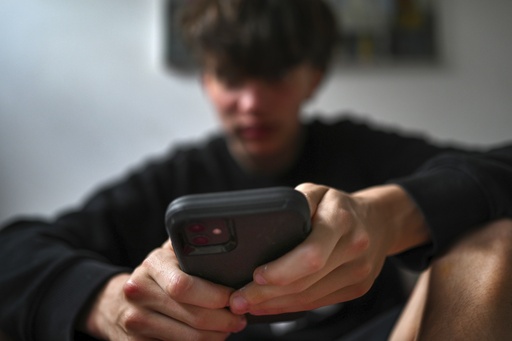
MELBOURNE, Australia — On Thursday, Australia’s communications minister introduced groundbreaking legislation in Parliament aimed at banning social media access for individuals younger than 16. Minister Michelle Rowland emphasized that online safety presents one of the most significant challenges for parents today.
Rowland mentioned that key platforms such as TikTok, Facebook, Snapchat, Reddit, X, and Instagram could incur fines up to 50 million Australian dollars (approximately $33 million) if they fail to effectively prevent children from creating accounts. “This bill is intended to establish a new societal norm where social media is not viewed as a critical part of growing up in Australia,” she stated during her parliamentary address.
Acknowledging the urgency of the situation, Rowland indicated that immediate action is necessary to shield young children and teens from unfiltered and potentially harmful online content. The proposed legislation has garnered extensive political backing, and if enacted, social media platforms will have one year to implement the age restrictions.
Rowland highlighted troubling statistics, noting that nearly two-thirds of Australian youth aged 14 to 17 have encountered extremely disturbing online content, including themes of drug abuse, self-harm, and extreme violence. Additionally, a significant portion have stumbled upon material encouraging unhealthy eating practices. “Research indicates that 95% of caregivers in Australia view online safety as one of their most pressing parenting dilemmas,” she said.
The minister stressed that social media companies bear a social responsibility to address the dangers prevalent on their platforms. “Our goal is to protect young individuals, not to punish or alienate them. We aim to assure parents that their children’s health and well-being are being supported,” Rowland continued.
However, concerns have been expressed by child welfare and internet experts regarding the potential negative effects of this ban, particularly the isolation it may cause for 14- and 15-year-olds who are already part of online communities. Rowland clarified that the ban does not extend to messaging apps or online gaming platforms that significantly contribute to users’ education and health.
“While there are indeed risks associated with messaging platforms and online gaming, the nature of interactions differs. Users are less likely to face the same level of content curation and psychological influence that leads to compulsive engagement,” Rowland elaborated.
Last week, it was announced that a consortium, led by the British firm Age Check Certification Scheme, has been commissioned to explore various technological solutions for estimating and verifying user ages. Beyond restricting access to social media for those under 16, the government is also exploring methods to limit access to online pornography for individuals under 18, according to an official statement.
Tony Allen, the chief executive of Age Check Certification Scheme, revealed that the technologies under consideration include age estimation and age inference, the latter involving the deduction of a user’s age based on a series of observable facts.
Rowland asserted that social media platforms could face the same steep fines of up to AU$50 million ($33 million) if they misuse personal data collected for age verification. She emphasized the importance of ensuring that any information used for this purpose is destroyed afterward, unless the user provides consent to retain it.
Digital Industry Group Inc., representing the interests of the digital sector in Australia, criticized the proposed age restrictions, labeling them a “20th-century solution to 21st-century challenges.”
